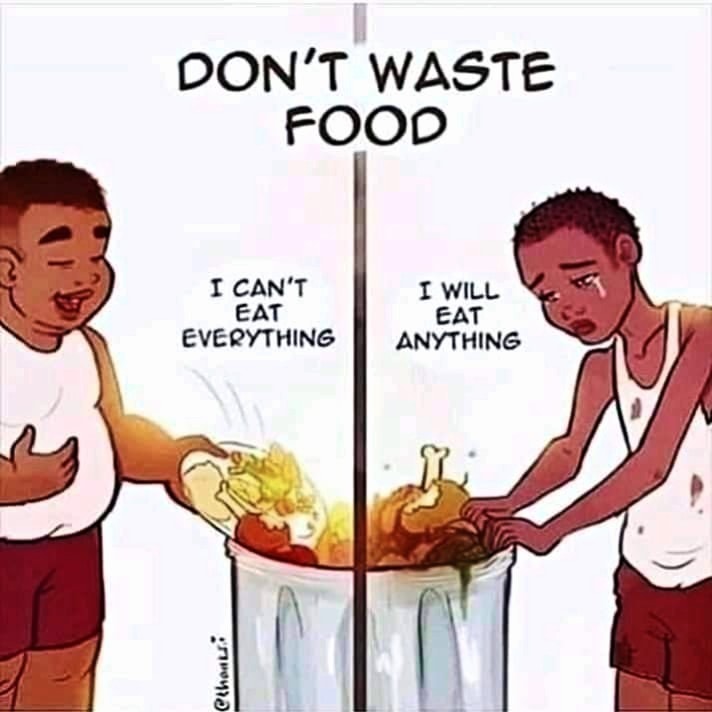“There are people in the world so hungry, that God cannot appear to them except in the form of bread” – Mahatma Gandhi
You stock your plate with a huge pile of food at a buffet. And after having had your fill, you notice that there is food still remaining on your plate. What do you do? You shrug your shoulders, and drop the food into a dustbin, ignoring the heap of food already lying in it. Nearly half of the food in the buffet ends up in the trash bin. Through one of the uncountable ways, you end up contributing to one of mankind’s toughest challenges.
We often acknowledge problems that the world faces, but fall into the trap of ignoring them, and we pretentiously cloud our reality. Even today, millions of people go to bed on an empty stomach each night – the Internet and media being constant reminders of their plight. But as long as we have access to food, we can continue living in our “safe bubbles” as usual, right?
Today, household food wastage remains a major impediment to socio-economic and ecological progress. According to a recent UNEP report, 931 million tonnes of food was wasted in 2019 alone, which is equivalent to the weight of “23 million fully-loaded 40-tonne trucks – bumper-to-bumper, enough to circle the Earth 7 times”. It is further estimated by the report that 50 kilograms of food per person are wasted annually in our country. With over a billion people in India, it’s hard to even imagine the surplus food we will never be able to get back.
Household food wastage is a global issue; India is just one of the many contributors fuelling the fire. As food becomes a part of our dump yards, millions of people remain starved and deprived. Our discarded food in landfills eventually breaks down and gives rise to a lethal gas – methane, a gas that is 86 times more powerful than carbon dioxide.
Labour, the efforts of toiling farmers to feed you, electricity, fossil fuels used in transportation, investments, water and other resources, etc. – wasting food is pouring all these things down the drain.
As noted by Inger Anderson in the UNEP report of 2021 on food wastage, though there is evidence of success in reducing food waste, much more can be done and needs be done.
What can we do on our part to lessen our impacts on this global crisis? We could start first by identifying our wrongs and correcting them. This could mean changing our old habits of purchasing food items excessively or stocking them for future needs or even preparing large and unnecessary quantities of food.
When buying food items, keep in mind to look at their expiry dates and purchase only those that you can consume before the given date. Try not to throw your leftovers into the trash. Rather, store them in your refrigerator and consume them later as a snack or use them in a separate meal. Remember, every small step of yours counts.
“Food waste is an atrocity that is reducible, if not completely voidable” – Stephen Hough

Hussain, 16, is an avid reader and writer. He has a keen interest in water sports such as sailing, surfing, and stand-up paddling.

